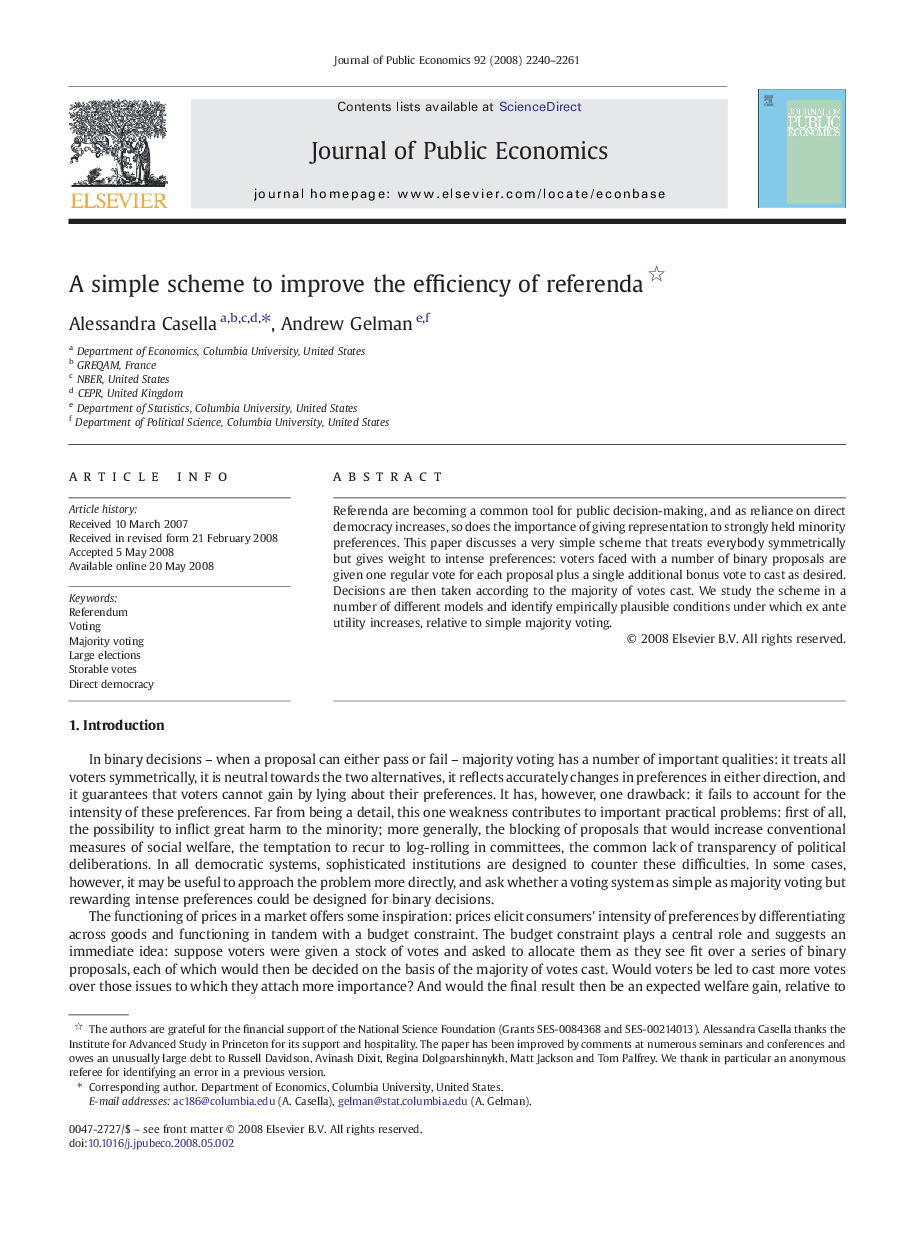| Article ID | Journal | Published Year | Pages | File Type |
|---|---|---|---|---|
| 970263 | Journal of Public Economics | 2008 | 22 Pages |
Abstract
Referenda are becoming a common tool for public decision-making, and as reliance on direct democracy increases, so does the importance of giving representation to strongly held minority preferences. This paper discusses a very simple scheme that treats everybody symmetrically but gives weight to intense preferences: voters faced with a number of binary proposals are given one regular vote for each proposal plus a single additional bonus vote to cast as desired. Decisions are then taken according to the majority of votes cast. We study the scheme in a number of different models and identify empirically plausible conditions under which ex ante utility increases, relative to simple majority voting.
Related Topics
Social Sciences and Humanities
Economics, Econometrics and Finance
Economics and Econometrics
Authors
Alessandra Casella, Andrew Gelman,
